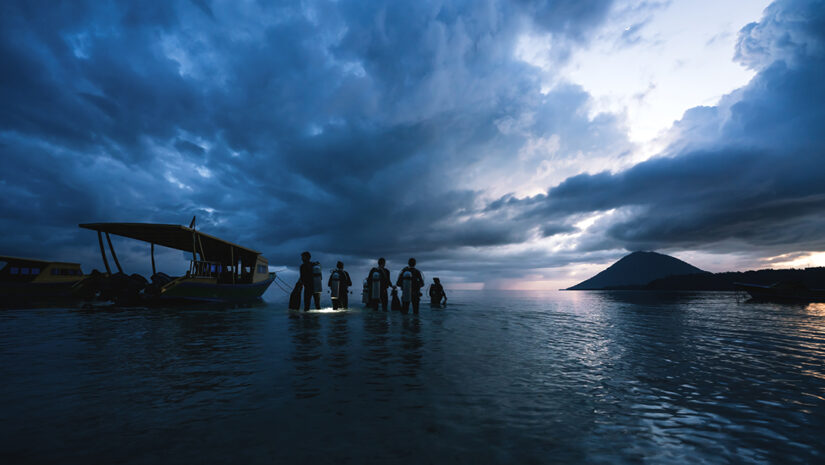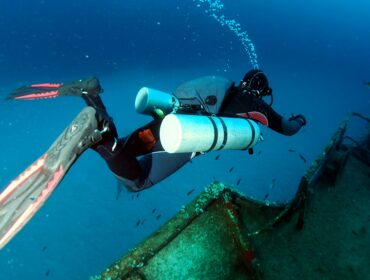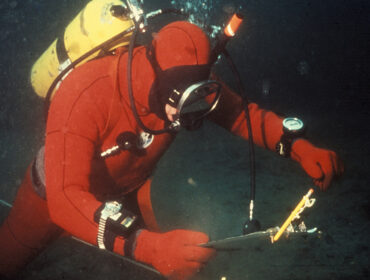Five specialty courses are required to climb the certification ladder to PADI Master SCUBA Diver to give you various dive experiences. You may choose any you wish to complete 5, and several courses are available after being Open Water certified. Of course, PADI specialty courses are available for any diver who meets the requirements to take the class. So, if you want to learn a new skill, why not earn a certification while you’re at it? In this article, we will introduce you to one many will find a bit nerve-wracking, but why not tackle that fear? We will be talking about the night diver course.
Night Diver Specialty Course
A night diver course is more than just using a flashlight to see underwater. Being underwater at night is stepping into a new world where your perceptions are confused by the properties of the soundless dark. Many marine creatures are nocturnal, and you’ll see what a busy world it is once you get the basics down. The PADI Night Diver course teaches you how to plan your night dives, what procedures to follow, specific techniques, and how to handle potential problems. You’ll also learn the art of controlling your buoyancy in the dark, which involves more than your typical buoyancy control techniques. Entry and exit positions for night diving and underwater navigation will be covered.
Not to mention the brand new dive site! You will be able to see and learn the creatures of the night in the undersea reefs. Bioluminescent plankton glitter in the dark ocean waters and creatures of all kinds come to life under a night sky. Some great tips are recommended before you take the Night Diver course, as well as general tips for diving at night:
Practice in a swimming pool
If you have access to a swimming pool after dark or one where you can turn out the lights, you could put on your SCUBA gear and give it a test drive. Then, when actually in open water, you’ll be somewhat pre-adjusted to the drastic light difference.
Choose a dive site you are familiar with
This is a good tip for a couple of reasons. If you know what to expect during the day, you’ll know what to expect at night. Plus, you’ll see the other side of the reef that comes alive at night.
Start before the sun goes down. Suppose you’re in your full SCUBA gear and ready to dive before sunrise. In that case, you will have a unique opportunity to observe the “twilight” behavior of marine creatures. Either settling in for the evening or ready to catch their prey.
Make a plan and stick to it
Opt for a shorter, shallower dive, and don’t forget to navigate to ensure you stay within your guidelines. Use available objects like lights from the surface or mark your boat’s anchor line to make a mental map of your dive area.
Always carry two dive lights!
This cannot be understated. The inability to see underwater could cause you to panic or become disoriented. Ensure you test your lights before taking them in the water and that they are fully functional and damage-free. This is your lifeline when night diving, so prepare well!
Don’t be afraid to see the dark
This is a funny tip to recommend right after stating the importance of multiple dive lights, but shielding the lamp for a few minutes will allow you the experience of pure darkness. Or perhaps pure clarity if moonlight illuminates the reef around you.





